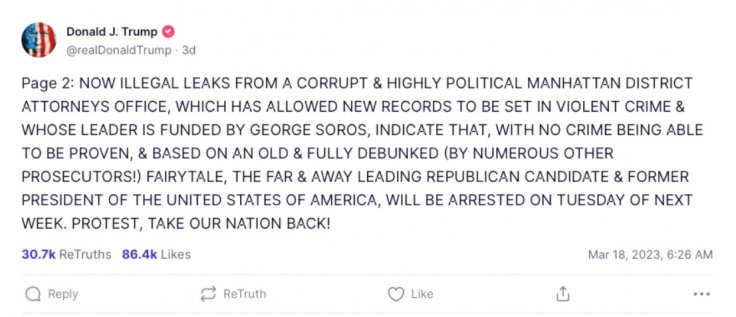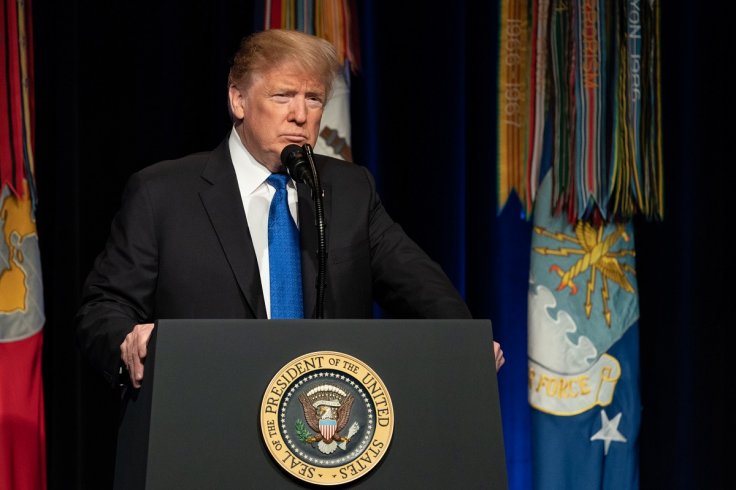The United States Secret Service has rebuffed a move by the Manhattan district attorney's office to arrest former president Donald Trump on Friday, according to reports. Trump was indicted by a grand jury on Thursday, marking a historic first instance of a former US president being slapped with criminal charges.
According to Politico the Secret Service, which is in charge of presidential security, rejected the plan for immediate arrest of the former president as it needed more time for preparations.

The outlet reported that Joe Tacopina, a lawyer for Trump, confirmed the development. However, the Manhattan DA's office did not make any comments on the development. Tacopina also told the news outlet that no precise date had been set for the surrender of Trump.
The former President faces more than 30 charges linked to business fraud, sources told CNN. The Manhattan District Attorney's office said it has contacted Trump's attorneys demanding the former president's surrender in order that the arraignment takes place.
What are the Processes?
The day and the timing of Trump's surrender and appearance in the court are not decided. Trump's legal team is in talks with the Manhattan DA's office over this. Trump is currently stationed at his Mar a Lago home. There are no indications that Trump will resist arrest. His attorneys had earlier said the former President would cooperate with the law enforcement.
On the appointed day of Trump's appearance at the court, Trump will be permitted to fly into New York in his private jet and then travel to the lower Manhattan court house by car. It is reported that Trump's lawyers would be able to convince the judge to spare the former president the routine 'perp walk', where the accused will have to walk in front of the assembled media.
However, Trump would be finger printed inside the court house as is routine in criminal cases. His mug shot would also be taken following this, a prospect the political opposition would relish. The former president's mug shots at the arraignment will be widely used during the 2024 presidential campaign by the Democrats.

Inside the court house, Trump will be informed of his "Miranda" rights, which is a set of guidelines on the constitutional rights of a person undergoing prosecution. Usually defendants in felony cases will be handcuffed at the arraignment, but here again, Trump's lawyers will try to avoid this.
When the court processes are completed, a date will be set for the prosecution of the former president. If the former president is convicted, he is likely to be slapped with a fine. Though a prison term of four years can be awarded for the crime he is accused of, Trump is unlikely to be given a prison term, according to experts.









